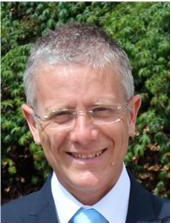5月11日:CANARY天文台及GTC望远镜介绍
报告时间: 2016年5月11日(星期三)上午9:30-11:30
报告地点:南京天光所办公大楼二楼报告厅
报告题目1:Astrophysics in the Canary Islands: from terrestrialplanet searches to Big Bang Cosmology
Prof. Rafael Rebolo López
Director General of IAC

Prof. Rafael Rebolo is CSIC research professor at the IAC since 1988. In October 2013 became the director of Instituto de Astrofísica de Canarias (IAC). He is an external(honorary) professor of the Max Planck Institute for Astronomy in Heidelberg since 2001. Prof. Rebolo has been awarded several of the most important research prizes in Spain (Iberdrola Science and Technology Prize 2000, Jaime I Research Prize 2001, Canarias Research and Innovation Prize 2002) for his studies on the radiation from the Big Bang, for the discovery in 1995 of brown dwarfs (astronomical objects intermediate between stars and giant planets, billions exist in our Galaxy) and for his studies on the origin of elements and of stellar black holes. He is member of the Spanish Royal Academy of Sciences and of the Max Planck Society. He is Doctor HonorisCausa for the Politechnic University of Cartagena. In 2015, he was awarded the Jules Janssen Prize (the most important award of the French Astronomical Society).
Abstract
The observatories of the Institute of Astrophysics in the Canary Islands (IAC) host a large number of facilities from more than 20 countries which include some of the world largest telescopes for optical/infrared and gamma ray astronomy. In this talk, Prof. Rafael Rebolo will describe the main telescopes at these observatories and highlight recent results of the IAC research programme in fields like the search for Earth-like planets, understanding the generation of solar magnetic fields, the formation and evolution of stars and galaxies, the large scale structure of the Universe and the anisotropy of the cosmic microwave background.
报告题目2: Science with the 10.4m GTC
Prof. Romano Corradi
Deputy Director of GTC

Prof. Romano L.M. Corradi is currently deputy director of the 10.4m Gran Telescopio de Canarias (GTC). He was researcher of Instituto de Astrofísica de Canarias(IAC) and senior support astronomer of Isaac Newton Group of Telescopes (ING). He has 25 years of active research in the fields of planetary nebulae, symbiotic stars, the Milky Way and nearby galaxies. Also he has vast expertise in instrumentation and telescope management at the ESO and the ORM observatories. He was member of the ESO Observing Proposal Committee (OPC) in 2006, 2011 and 2012, of the IAU “Working Group on Planetary Nebulae" starting from 2006, and of the HST TAC panel in cycle 23. He also was President of the Spanish night-time allocation committee (CAT) in 2014-2015, and P.I. of five approved HST proposals, and coI of eleven other ones.
Abstract
In this talk, Dr. Romano L. M. Corradi will introduce the GTC telescope, the largest optical-IR telescope in operation. It is a 10.4m alt-az telescope with a segmented primary mirror, and is located in the northern hemisphere in one of the best astronomical sites worldwide: the Observatorio del Roque de los Muchachos (La Palma, Canary Islands, Spain). GTC has an ambitious instrumentation plan that takes advantage of the availability of various focal stations. This allows several instruments to be mounted simultaneously, some of which have unique capabilities that will be described in some detail. Regular operations of the GTC started in 2009, and a number of scientific results have been obtained. The most relevant ones, which span a variety of astrophysical areas, will be briefly presented.
学术委员会
2016年5月6日

